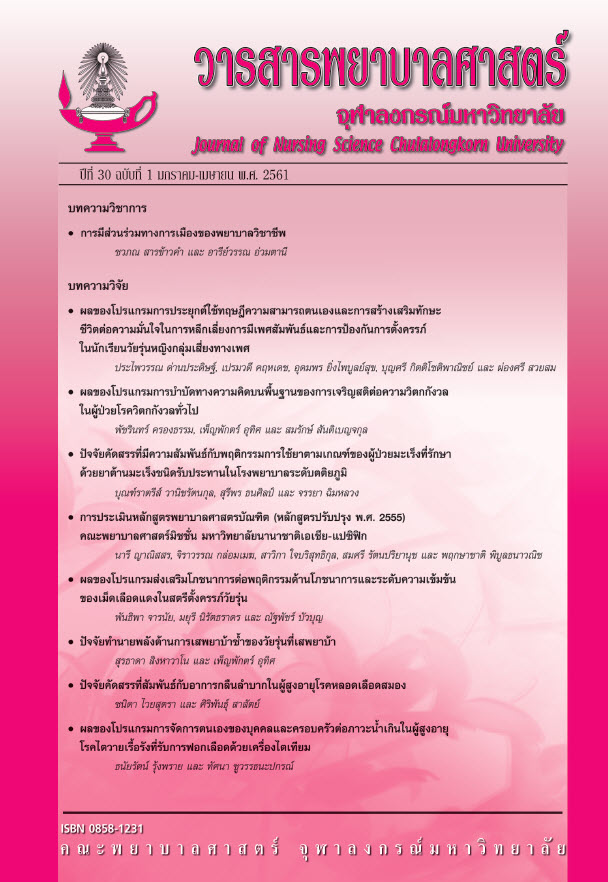ปัจจัยคัดสรรที่สัมพันธ์กับอาการกลืนลำบาก ในผู้สูงอายุโรคหลอดเลือดสมอง
Main Article Content
Abstract
Purpose: The study aimed to examine relationships between selected factors and dysphagia in older person with stroke.
Design: Descriptive correlational research.
Methods: The subjects were 88 hospitalized older persons with stroke in the Thammasat University Hospital and Police General Hospital, and were selected using multi-stage random sampling technique. Research instruments were demographic questionnaires, MMSE-T, Barthel ADL Index, Awareness symptom of dysphagia, NIHSS, Indirect Swallowing Test, and Direct Swallowing Test which were tested for content validity and reliability. The reliabilities were .84, .94, .92, .73, .91 and .80 respectively. Data were analyzed using frequency, percentage, mean, percentage, standard deviation, Pearson’s Product Moment Correlation Coefficient, and Point biserial Correlation Coefficient.
Findings: 1) Fifty nine percent of older persons with stroke had dysphagia, 2) Age and severity of stroke were significantly positive correlated with dysphagia in older person with stroke at level of .05 (r =.257; .820 respectively), 3) Activities of daily living and awareness symptom of dysphagia were significantly negative correlated with dysphagia in older person with stroke at level of .05 (r = -.795; -.657 respectively) and 4) Cognitive function was significantly correlated with dysphagia in older person with stroke at level of .05 (rbp = .581) Conclusion: Nurses can use the findings from this study to develop the intervention to improve swallowing recovery in older persons with stroke.
Article Details
ลิขสิทธิ์ของบทความที่ตีพิมพ์เป็นของวารสารพยาบาลศาสตร์ จุฬาลงกรณ์มหาวิทยาลัย ทั้งฉบับตีพิมพ์เป็นรูปเล่มและเอกสารออนไลน์

